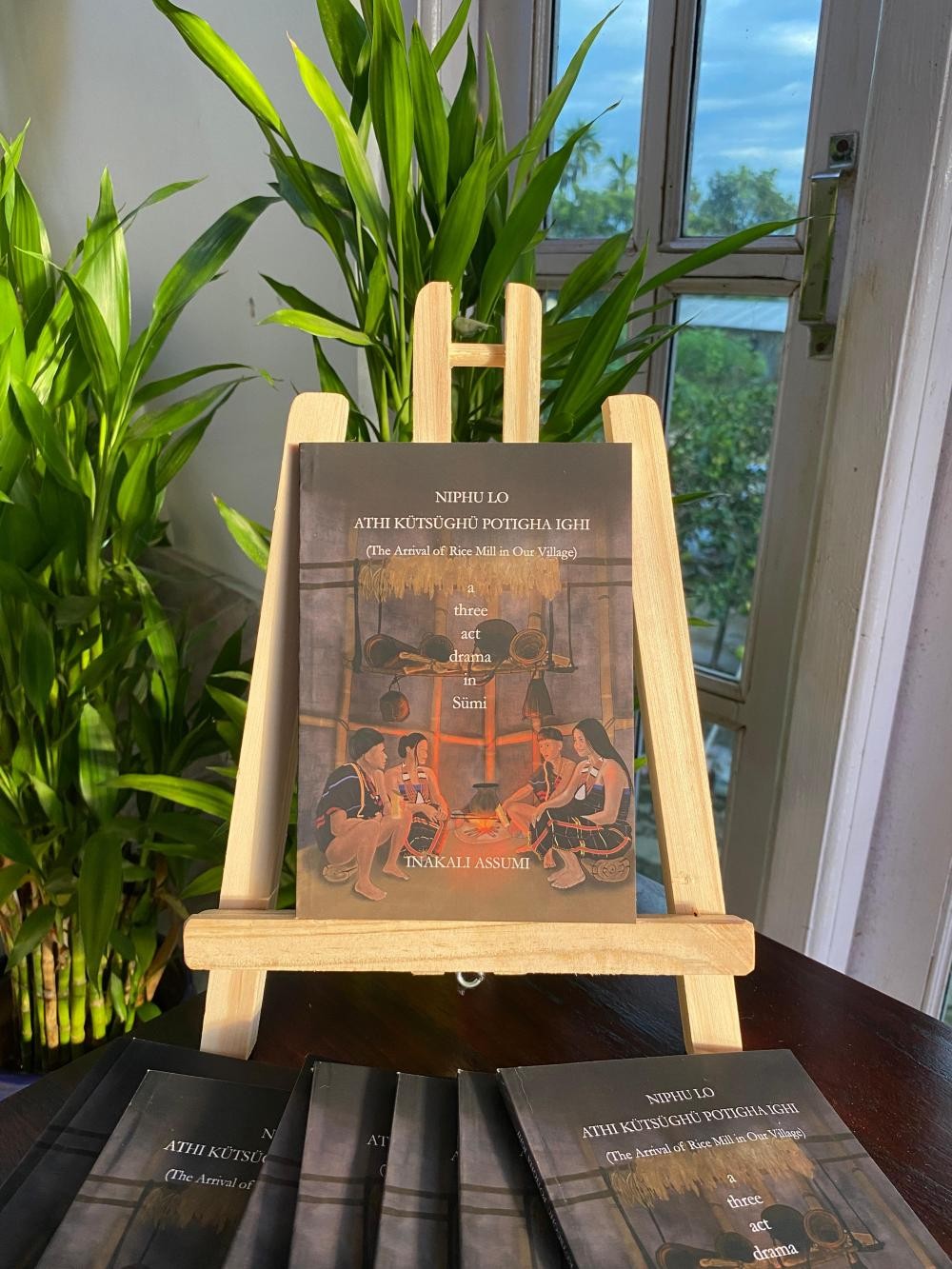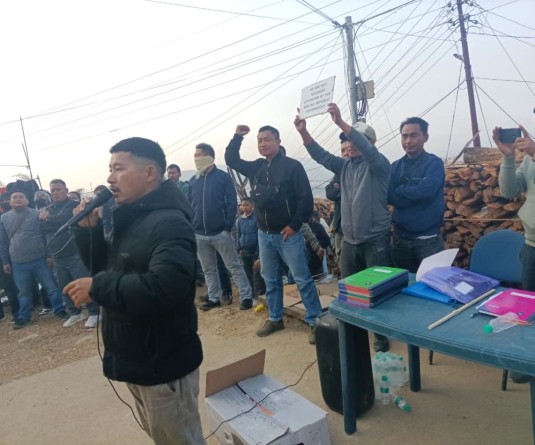
DIMAPUR, SEPTEMBER 14 (MExN): Inakali Assumi's new book, Niphu lo Athi Kütsüghü Potigha Ighi (The Arrival of Rice Mill in Our Village), was officially launched today. The drama, written in the Sümi dialect, is a three-act play that delves into the cultural shifts experienced by a Sümi village with the advent of modern technology.
The central theme of the play revolves around the symbolic arrival of a rice mill, representing the encroachment of modernity and Western cultural influences into traditional Sümi life. Through engaging dialogues and debates among the characters, Assumi captures the complexities of adapting to new ways of life while trying to preserve one's cultural heritage.
In her address, Assumi expressed her commitment to enriching Sümi literature and preserving her community's dialect, which she believes is at risk of fading. She voiced concern over the younger generation's diminishing proficiency in their native tongue, despite having parents from the same community. Assumi highlighted the importance of literary works in native dialects to foster linguistic competence and cultural identity among youth.
The author credited Dr Nishena Nekha, Additional Director at the Directorate of Higher Education, for inspiring her to write in Sümi and for her unwavering support throughout the process. Assumi also acknowledged her uncle, Akhalu Assumi, for his invaluable assistance in proofreading and refining the manuscript.
With the launch of Niphu lo Athi Kütsüghü Potigha Ighi, Assumi hopes to inspire more creative works in indigenous languages and contribute to the preservation of Sümi cultural identity.






